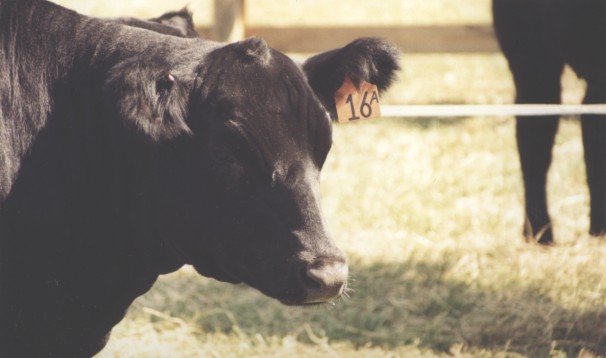OCJ: Cattle battle goes to federal court
by Leisa Boley Hellwarth, a dairy farmer and attorney near Celina | May 15, 2019
David sued Goliath in federal court in Chicago on April 23, 2019, alleging violations of U.S. antitrust laws, the Packers & Stockyards Act and the Commodity Exchange Act. Actually David is R-CALF-USA (Ranchers-Cattlemen Action Legal Fund United Stockgrowers of America), a national non-profit organization that represents U.S. cattle and sheep producers on domestic and international trade and marketing issues. Plaintiffs also include four cattle feeding ranchers from Iowa, Nebraska, Kansas and Wyoming.
Goliath is the Big 4: Tyson, Cargill, JBS and National Beef. These four defendants collectively purchase and process more than 80% of the fed cattle in the U.S. annually.
David’s slingshot is a federal class action. The complaint describes two classes purportedly harmed by actions of the Big 4: cattle producers who sold fed cattle to any of the Big 4 from January 2015 to the present; and traders who transacted live cattle futures or options contracts on the Chicago Mercantile Exchange (CME) from January 2015 to the present. It is rather unusual to find cattle producers and traders on the same side of the fight.
David’s slingshot is being aimed by Scott+Scott, a national antitrust and securities litigation firm, along with Cafferty Clobes Meriwether & Sprengel LLP, another well-respected law firm. The plaintiffs, through their counsel, allege that from at least January 1, 2015 through the present, the Big 4 packers conspired to depress the price of fed cattle they purchased from American ranchers, thereby inflating their own margins and profits.
Establishing proof of these allegations is a monumental task. The complaint, however, includes trade records, economic evidence and witness accounts, including a former employee of the Big 4. R-CALF USA asserts that various means were used by the Big 4 to depress the price of fed cattle by 7.9%.
According to R-CALF CEO, Bill Bullard, the lawsuit was filed to protect the integrity of the U.S. cattle industry after attempting other measures to rectify the situation did not work. Previously, R-CALF had approached both Congress and the Trump Administration and requested investigations into the structure of the cattle industry to no avail.
The origins of R-CALF go back to 1998 when ranchers from Montana, Colorado and South Dakota founded the organization as a vehicle for stopping Canada and Mexico in the alleged practice of selling cattle below cost in the U.S. R-CALF actually filed with the International Trade Commission. Although ITC ruled against R-CALF’s complaint, ITC conceded that R-CALF had a legitimate point. Cattlemen then assumed the foundation would dissolve. R-CALF’s case before the ITC, however, generated so much support that the group stuck around and convinced the U.S. Department of Commerce to implement anti-dumping tariffs against Canada.
NCBA (National Cattlemen’s Beef Association) is the trade association and lobbying group for U.S. producers in the U.S. that is partially funded through the Beef Checkoff. NCBA and R-CALF are like oil and water. NCBA proudly lists representing Purina, the American Hereford Association, Dow Chemical, McDonald’s and Wal-Mart on their website. R-CALF proclaims they are the largest producer-only membership based organization that exclusively represents U.S. cattle and sheep producers on domestic and international trade and marketing issues. NCBA supports free trade and expansion of the beef market worldwide. R-CALF is dedicated to ensuring the profitability and viability of the U.S. cattle industry. And R-CALF is currently supporting proposed legislation that would ensure transparency in the agricultural checkoffs.
The battle between R-CALF and the Big 4 is just beginning. This David vs. Goliath match will likely not be a short story. It is worth monitoring because some Ohio producers will likely qualify for membership and possible damage awards, should the class action be certified and plaintiffs prevail. This process, however, is lengthy and an uphill battle.
Russell Johnston, the Scottish statesman, once observed that David vs. Goliath is all about perspective. When Goliath came against the Israelites, the soldiers all thought, “He is so big. We can never kill him.” David looked at the same giant and thought, “He is so big. I cannot miss.”
